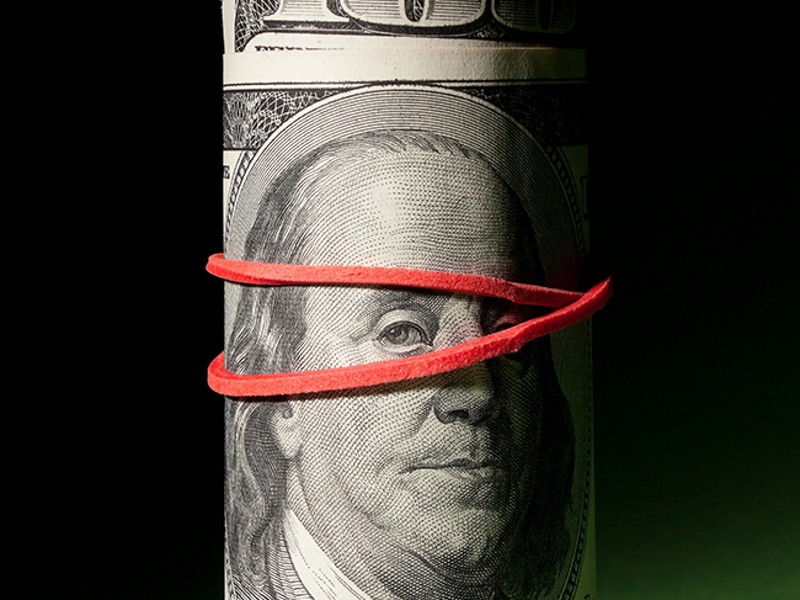

With a deal completed between PokerStars and the United States government allowing for a Stars acquisition of the assets of Full Tilt Poker, one of the largest questions remaining concerns exactly how US-based former players of Full Tilt will be refunded.
Americans represented the majority of Full Tilt’s pre-Black Friday business, and according to published reports, the US Department of Justice has yet to determine the method to be used in refunding these players. Will the refund scheme be based on player balances, or on deposits initially made?
There is at least some rationale for each position, but this piece will separate the fact from fiction. Precedents do exist.
On Thursday, the Poker Players Alliance (PPA) published a redacted version of its own plea to DOJ officials, offering to assist in the remission process. The PPA’s offer was as much a plea for existing player balances to be paid as it was an offer to assist, touching on four key points, but only one of the four was truly relevant.
In that, the PPA correctly points out that PokerStars was allowed to refund US players in 2011 at the amount of their existing balances. Despite theories being floated that the DOJ does not want to be seen as authorizing online poker, it nonetheless establishes precedent regarding the Black Friday seizures.
Published reports that the BetOnSports sportsbetting seizures also represent a precedent are less correct. In that episode, BOS principals Gary Kaplan and David Carruthers were arrested separately by US agents, and the company eventually folded.
Representatives of BOS’s Antigua-based operation eventually refunded BOS customers a paltry four cents on the dollar, but that was after a claim made by the company against roughly $40m in Kaplan’s assets had been denied by the US courts.
Those monies were seized and retained by US officials as forfeitures levied against Kaplan, with none being returned to the players.
The fact that US authorities have established a baseline of needing to pay themselves tens or hundreds of millions in online gambling cases also applies to the Full Tilt situation, which we’ll get to in a bit.
Thin Arguments for Player-Deposit Refunds
Only one strong argument exists supporting the refunding of player deposits, and that is the possible reluctance of DOJ officials to be seen as even tacitly authorizing online poker in such a high-profile case. However, that argument disappears in light of the following:
- The DOJ has already given tacit approval of player-balance refunding in the PokerStars case.
- The PokerStars refunds occurred prior to the clarification by the DOJ that the 1961 Wire Act applies to sportsbetting only, and not to online poker.
- Full Tilt offered only online poker, and therefore the site’s US customers played lawfully as determined by the DOJ itself. Under this circumstance, no method other than player-balance refunds can be considered fair.
Proponents of refunds based on deposits also overlook the fact that a remission process based on that method would be tens or hundreds of millions of dollars more expensive than refunds based on balances, due to the effects of the site’s rake.
In fact, total deposits by US players almost surely exceeds the amount forfeited by PokerStars in its settlement, plus whatever assets can be seized from Full Tilt executives currently facing civil and criminal charges.
Lacking an arbitrary and undefendable cutoff line, this would mean only partial refunds for players, since the DOJ surely won’t be coughing up the difference.
The bottom line, however, is that a remission process based on player balances is vastly superior to the DOJ’s and US government’s own bottom line.
The Phantom Deposit Situation
One complicating circumstance—no matter which refund method is selected—involves the unprocessed deposits which have accumulated within the Full Tilt system. Because of e-processing interruptions related to the US’s 2006 passage of the UIGEA, Full Tilt extended its American players roughly $130m in credit in the months preceding Black Friday.
The unprocessed e-checks likely emanate from two basic groups—a large populace of casual players who learned only later that their deposits of $50 or $175 never cleared, and a small group of perhaps a couple of hundred well-connected “grinders,” or site regulars, who discovered Full Tilt’s processing problem within weeks and deposited repeatedly (and likely fraudulently), freerolling the site.
Expect some collection efforts to be targeted toward the latter group, though regarding the larger populace, those old e-checks may be largely uncollectable. This could represent the larger share of the $130m in unprocessed e-checks, though no breakdown of this nature is publicly available.
It would seem easy enough to just deduct the deposits from the existing balances and go on from there, except the players doing the depositing are most likely to be the site’s losing players—hence the need for the deposits.
The Third-Party Agent Solution
The PPA’s offer to serve as an agency assisting the remission process highlights one avenue available to US officials, and that’s to retain a third party to handle the remission, and thus keep its own hands clean of any refund process.
Whether or not the PPA is the right agency to handle this chore is a debate far beyond the scope of this piece, though if a DOJ does select an outside agency, that agency’s fees will also have to be subtracted from the pool of available funds.
While the PPA “stands ready to assist,” nowhere in its letter to the DOJ does it assert it would do so for free. Nor is any other third party likely to be so inclined.
The possible third-party escape clause for the DOJ, however, doesn’t change the balances-vs.-deposits situation. And on that one, the evidence and money involved both clearly support the selection of repayment of player balances as the likeliest result.

